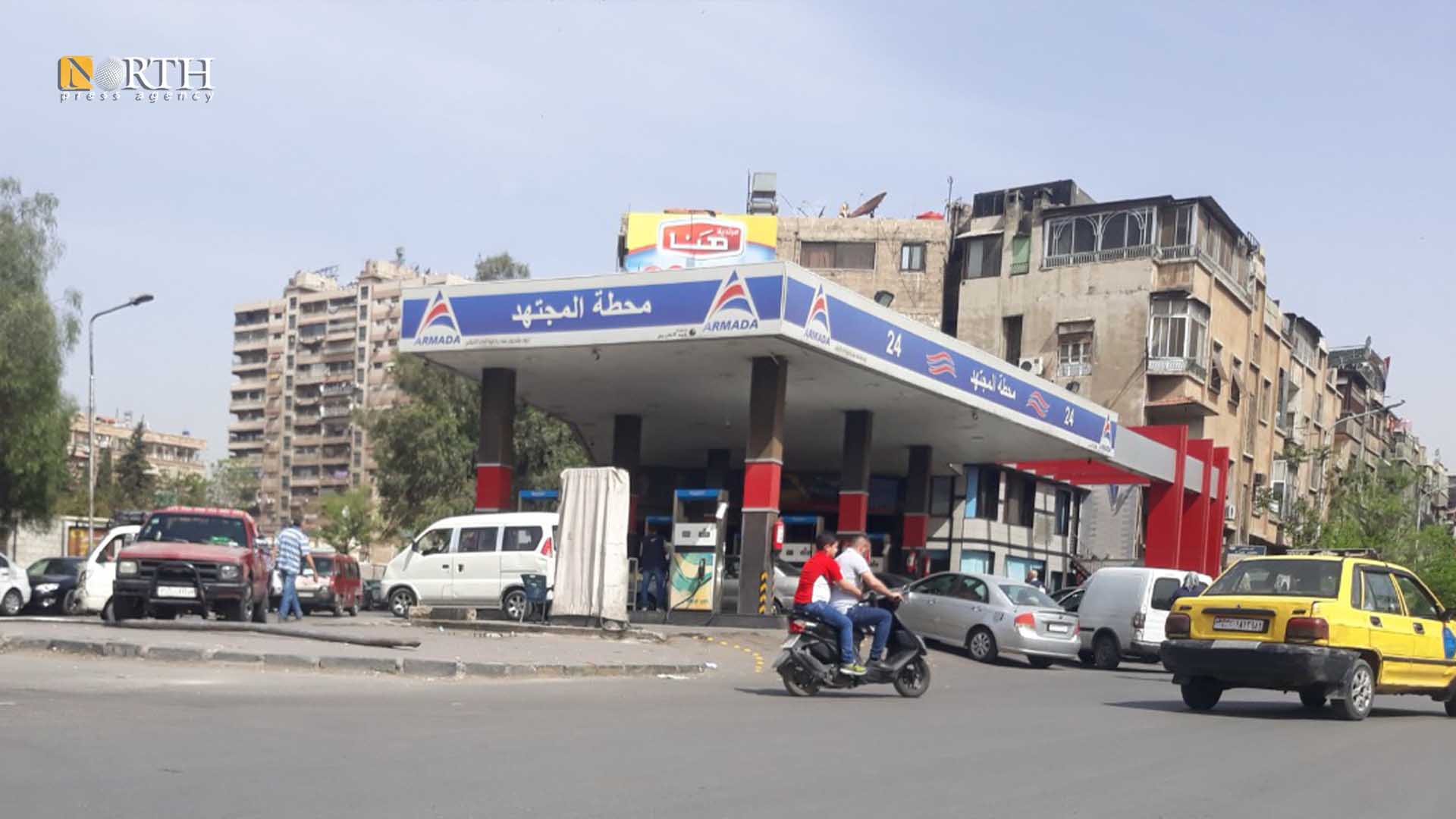DAMASCUS, Syria (North Press) – Many residents of the Syrian capital, Damascus, expressed their dissatisfaction with the start of distributing diesel according to the messaging system early next July, saying that the method of distribution is “nothing but a revival of the black market business.”
Legalization of the black market
George Wasel, 52, a resident of Bustan al-Dor in northeast Damascus, considered distributing diesel via the smart card as an official announcement and legislation for the revival of the fuel black market business.
“All the previous materials that the government adopted with the same policy to solve the problem of fuel shortage, was nothing but legitimacy, surrender, imposition and management of this shortage,” he said.
“The only thing the population has got from these policies is the rise in the parallel black market prices, where just the rich people can get fuel from,” Wasel added.
On April 5, the Syrian government decided to completely transfer the process of distributing gasoline to the smart card according to the text message system, in a mechanism similar to the way gas is distributed.
The fuel crisis in Syrian cities suffer, has also made the government to decrease cars’ allocations to half.
Recently, after two weeks of buying gasoline from the black market, Mohsen Bozo, 35, a pseudonym for a doctor from Jaramana in Rif Dimashq, had to close his clinic to receive the gasoline allowances for his car.
The doctor pointed out that such decisions caused him problems and kept him away from his work, as he follows up the distribution queues of gasoline, gas and bread, “and now the diesel.”
Buying materials from the black market is more affordable, and every material the government adds to the smart card, doubles its price in the black market, according to the residents.
Very high prices
Bozo expressed his complaint and dissatisfaction with the current situation, “the situation has become incredibly humiliating,” he said.
Fuel is available in large quantities on the black market, but its prices, according to residents, are very high, as the price of a liter of gasoline ranges between 4,000 and 4,500 Syrian pounds (SYP), while the price of a liter of diesel ranges between 2,000 and 2,500 SYP, and a cylinder of gas ranges between 35,000 and 40,000 SYP.
While Najwa Nassar, 52, a pseudonym for a woman who lives in al-Qazzaz neighborhood in Damascus, is afraid to spend the next winter without diesel, after joining the waiting list of the text messages ,and the rise of black market prices “in a crazy way.”
Last winter, the policy of distributing diesel allowances was met with severe dissatisfaction from the residents, as a large number of residents of Damascus and Rif Dimashq had to spend the whole winter waiting for their turn of 100 liters of diesel, as some families have not received their allocations so far.
As for Izzat Yusra, 41, a pseudonym for a grocer in Sheikh Sa’ad neighborhood, said that he could not understand how the government adopted the same method, “which has proved its failure in practice and not achieving any change for the better.”
He pointed out that he has been waiting for 20 liters of gasoline for ten days, “but I have not received the message yet. We have been waiting for a gas cylinder for two months, and the message has not arrived yet.”
“It seems that the diesel will also be entered the waiting list for the shameful quantities that the government donates to the people,” he added.

